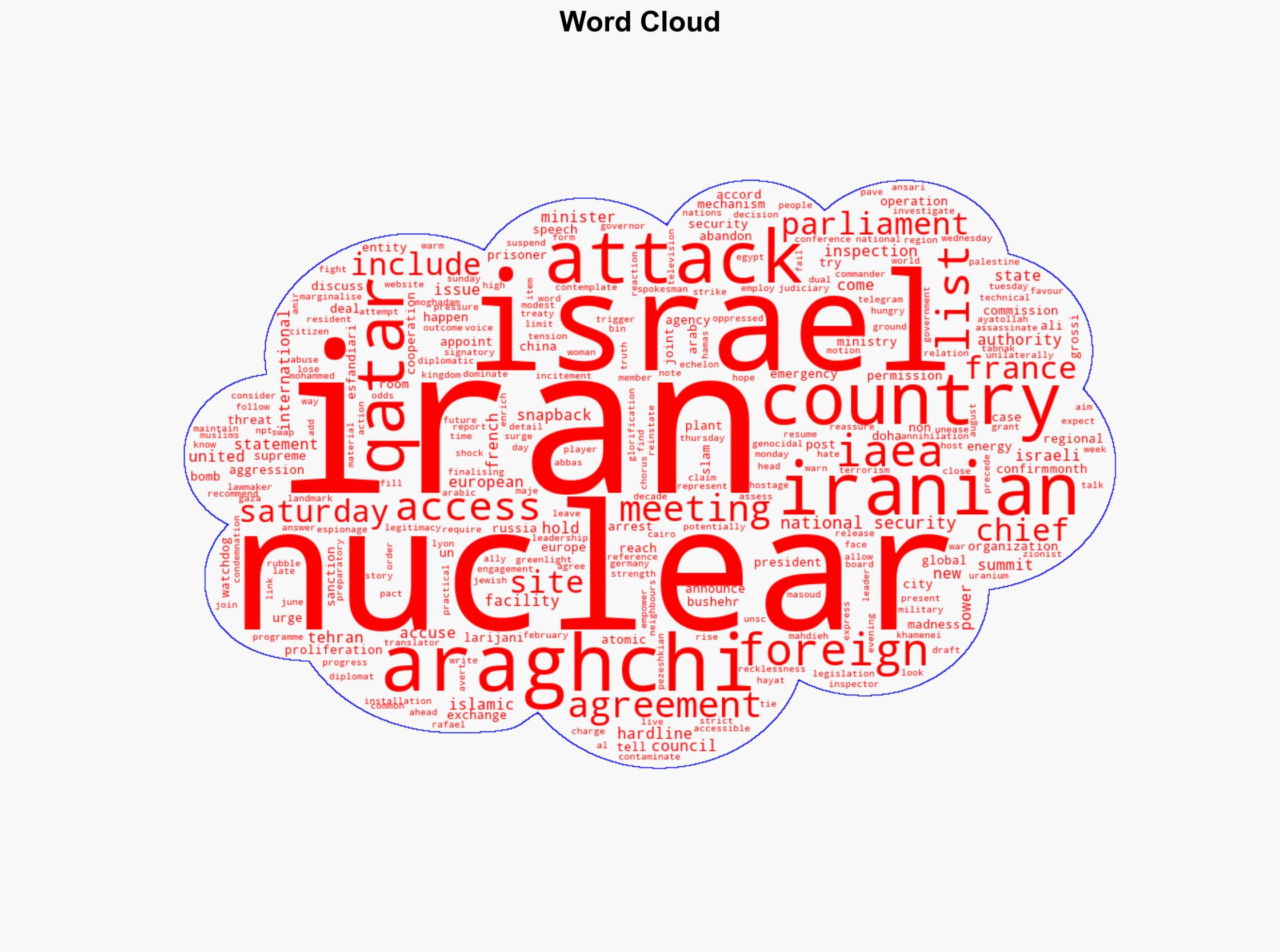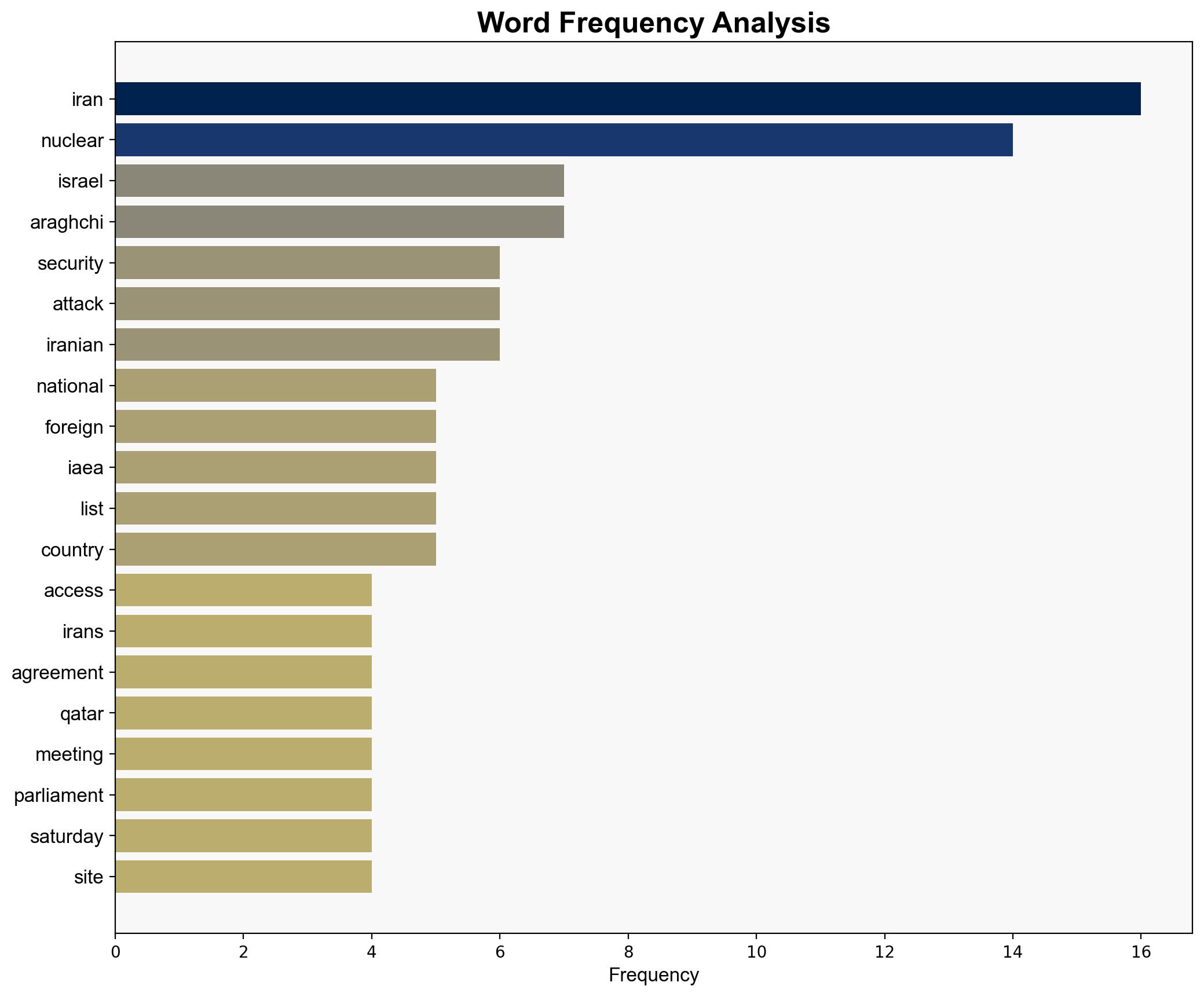Iran considers nuclear inspection access urges action against Israel – Al Jazeera English
Published on: 2025-09-13
Intelligence Report: Iran considers nuclear inspection access urges action against Israel – Al Jazeera English
1. BLUF (Bottom Line Up Front)
Iran’s consideration of granting limited nuclear inspection access while urging action against Israel suggests a strategic balancing act. The most supported hypothesis is that Iran is leveraging nuclear inspection access as a diplomatic tool to counterbalance Israeli actions and international pressure. Confidence level: Moderate. Recommended action: Enhance diplomatic engagement to clarify Iran’s intentions and mitigate regional tensions.
2. Competing Hypotheses
1. **Hypothesis A**: Iran is using the potential for nuclear inspection access as a diplomatic bargaining chip to gain concessions from international powers and counter Israeli influence.
– **Supporting Evidence**: Iran’s discussions with the IAEA and the reference to a technical agreement suggest a willingness to engage diplomatically. The simultaneous call for action against Israel indicates a strategic narrative aimed at shifting international focus.
2. **Hypothesis B**: Iran’s actions are primarily driven by internal political dynamics, with hardliners using the nuclear issue to consolidate power and justify aggressive postures against Israel.
– **Supporting Evidence**: The hardline-dominated parliament’s influence and the potential withdrawal from the NPT reflect internal political maneuvering. The rhetoric against Israel may serve to unify domestic support.
Using ACH 2.0, Hypothesis A is better supported due to the alignment of Iran’s diplomatic engagements with its broader strategic objectives.
3. Key Assumptions and Red Flags
– **Assumptions**: It is assumed that Iran’s leadership is unified in its approach to nuclear inspections and regional strategy. This may overlook factional differences.
– **Red Flags**: The potential for deception exists if Iran’s stated intentions regarding inspections are a façade for continued nuclear development. The lack of detailed information on the technical agreement with the IAEA is a significant gap.
4. Implications and Strategic Risks
– **Geopolitical Risks**: Escalation of tensions between Iran and Israel could destabilize the region, impacting global energy markets and security alliances.
– **Diplomatic Risks**: Failure to manage Iran’s nuclear ambitions diplomatically could lead to renewed sanctions and isolation, reducing the effectiveness of international agreements.
– **Psychological Risks**: Heightened rhetoric may increase regional anxiety, affecting civilian populations and potentially leading to miscalculations.
5. Recommendations and Outlook
- Engage in multilateral diplomacy to clarify Iran’s intentions and reinforce the importance of compliance with international norms.
- Monitor internal Iranian political dynamics to anticipate shifts in policy direction.
- Scenario Projections:
– **Best Case**: Iran agrees to comprehensive inspections, reducing regional tensions.
– **Worst Case**: Iran withdraws from the NPT, leading to increased sanctions and potential military confrontations.
– **Most Likely**: Iran continues to leverage inspection access for diplomatic gains while maintaining a hardline stance against Israel.
6. Key Individuals and Entities
– Abbas Araghchi
– Rafael Grossi
– Ayatollah Ali Khamenei
– Amir Hayat Moghadam
7. Thematic Tags
national security threats, cybersecurity, counter-terrorism, regional focus




